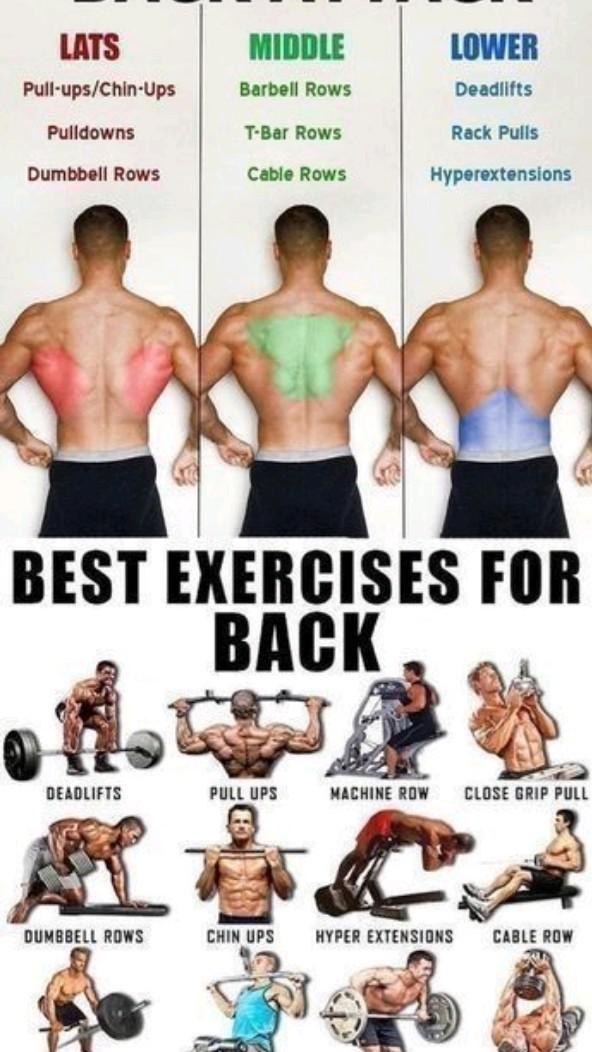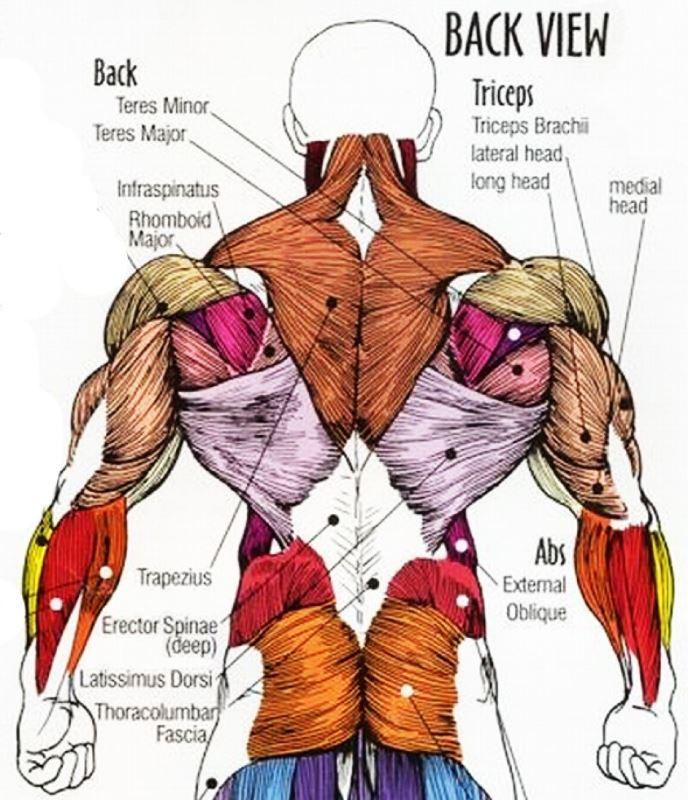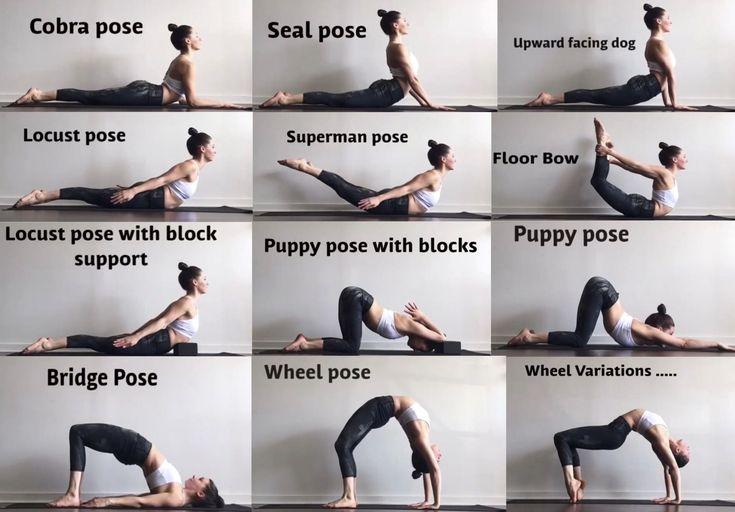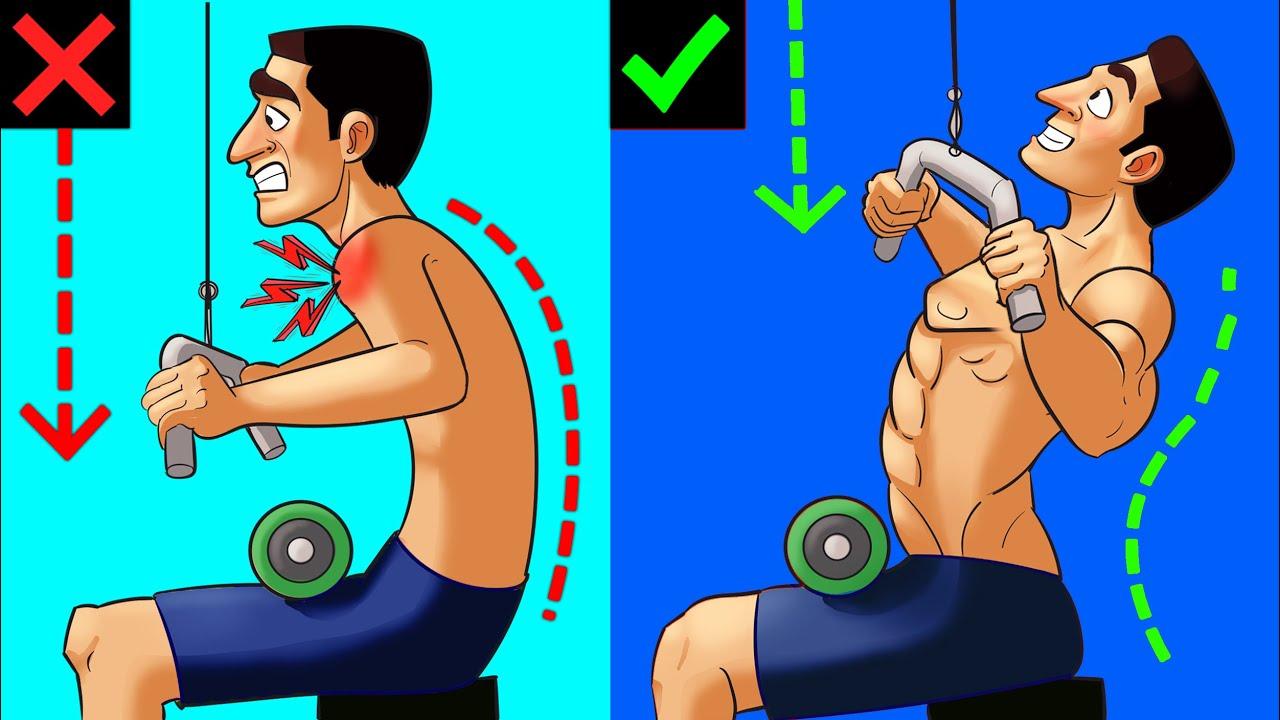Have you ever found yourself wincing after a long day at your desk, wondering why your back feels like it’s carrying the weight of the world? You’re definitely not alone. Many of us struggle with back pain or discomfort, often stemming from poor posture or a lack of movement. In this article, we’ll explore a variety of effective workouts designed specifically to strengthen your back, improve flexibility, and alleviate, if not eliminate, that nagging discomfort. We’ll delve into practical tips and easy-to-follow routines that fit right into your busy lifestyle. So, if you’re ready to discover some simple solutions that can help you feel better and move with ease, keep reading—you might just find your new favorite back-friendly workout!
Effective Back Workouts for Strength
When we think of strength training, we often visualize biceps bulging and abs rippling, but the back is arguably the unsung hero of our fitness journey. Imagine trying to lift that heavy box or perform a perfect deadlift—without a solid back, those feats become nearly impossible. The truth is, a formidable back not only enhances your overall physique but also bolsters your posture and protects against injuries. Have you ever wondered why Olympic weightlifters emphasize their back muscles? It’s because a robust upper and lower back can be the difference between a successful lift and a painful strain.
Take a moment to reflect on your typical workout routine. How much attention are you giving to your back? Many people skip over this essential muscle group, often opting for more visible muscles. But consider adding exercises like pull-ups, bent-over rows, and lat pulldowns into your regimen. Not only do these moves engage larger muscle groups, but they also ignite your core for added stability. If you’re unsure how to perform these exercises correctly, countless resources, including this study on muscle engagement, can provide guidance on maintaining proper form to avoid injury while maximizing strength gains.
Now, you might be thinking about how to break the monotony of your current back workout routine. One effective strategy is to incorporate supersets or drop sets. For instance, pair a compound movement like deadlifts with a targeted exercise like seated rows. Keep your heart rate up while hitting different muscle fibers for comprehensive development. Additionally, keep an eye on your progress—having a workout journal can be a game changer. Document your lifts and reps to maintain motivation and adapt your training as necessary. Remember, building strength in your back isn’t just about the here and now; it’s about paving the way for a stronger, more resilient body long-term.

Targeted Exercises for Back Muscle Growth
When it comes to building a strong back, the journey doesn’t just hinge on lifting heavy weights; it’s about targeting the right muscle groups with effective exercises. Think of your back as a complex puzzle made up of various pieces, including the lats, rhomboids, and traps. Imagine yourself in a gym setting, considering the machines and free weights around you. Instead of defaulting to the same old rows and pull-ups, consider incorporating variations like single-arm dumbbell rows or bent-over lateral raises. These exercises not only challenge your muscles in different ways, but they also help enhance your balance and stability, setting a solid foundation for your physique. Have you ever felt the burn in your back after trying a new workout? That’s your body adapting and growing stronger!
Many fitness enthusiasts often overlook the significance of *mind-muscle connection*. It’s not just about moving weight; it’s about feeling the muscles engage and contract throughout each repetition. Try this next time you work out: as you perform a back exercise, mentally visualize the muscles you’re targeting. This isn’t just a motivational tip; studies show that individuals who enhance their mind-muscle connection can significantly improve muscle activation and growth (see research by the Journal of Sports Science and Medicine here). Plus, ask yourself, “Am I using the right form?” Small adjustments to your technique can lead to better results while preventing injuries. Never underestimate the power of proper form!
Lastly, let’s talk about recovery, something that’s often sidelined in the hustle of back day routines. Many believe that muscle growth happens solely during the workout—surprise! It actually occurs while you’re resting. Incorporating a routine for recovery, including activities like *foam rolling or gentle stretching*, can enhance blood flow to your back muscles and help alleviate tension. And don’t forget about *nutrition*; consuming adequate protein and staying hydrated are crucial to support muscle growth. Perhaps you’ve noticed how a good post-workout meal enhances your recovery—just think of it as giving your muscles the fuel they crave! By optimizing your workout through targeted exercises, maintaining that vital mind-muscle connection, and being attentive to recovery, you’re not just growing muscles; you’re building a resilient back that will serve you well in every aspect of life.

Essential Stretches for Back Flexibility
When it comes to back flexibility, many of us tend to overlook the importance of stretching, often attributing our aches and discomfort to age or lifestyle. But what if I told you that incorporating a few essential stretches into your daily routine could dramatically improve your overall well-being? Think about how often you sit during the day—whether at work, while commuting, or during leisure activities. This sedentary behavior tightens muscles and can lead to poor posture. By actively engaging in stretching, not only can you alleviate discomfort, but you can also challenge the very notion that stiffness is inevitable as we age. Take a moment to reflect: how would a little more flexibility impact your daily life?
Let’s dive into some valuable stretches that can enhance your back’s flexibility. The Cat-Cow Stretch is a favorite for many; it’s simple yet effective in warming up the spine. Begin on your hands and knees, arch your back like a cat, and then dip it like a cow. This dynamic movement promotes circulation and eases tension in your back. Another fantastic stretch is the Child’s Pose—this gentle position not only lengthens the spine but also encourages relaxation. You might also consider incorporating the Knee-to-Chest Stretch, which helps release tension along the lower back. Always remember, consistency is key; aim to stretch for at least 5-10 minutes a day. Your back will thank you!
But why should you care about stretching your back, particularly in a world where everyone seems fixated on core workouts or high-intensity training? Well, consider this: a flexible spine can significantly improve your athletic performance and reduce the risk of injury. Studies show that regular stretching increases blood flow, thus promoting faster recovery post-exercise (source: American Council on Exercise). Plus, imagine tackling everyday tasks with greater ease—bending down to tie your shoes, lifting heavy groceries, or playing with your kids. Flexibility not only empowers your body but also enriches your quality of life. So, why not take a few moments each day to focus on stretching your back? It could be the game changer you didn’t know you needed.

Common Mistakes in Back Workouts to Avoid
When it comes to sculpting a strong back, many gym-goers find themselves making the same missteps repeatedly. One common mistake is neglecting proper form in favor of heavier weights. It’s easy to get caught up in the competitive atmosphere of the gym, but using poor technique can lead to injuries and hinder your progress. Imagine you’re in the middle of a deadlift; if your back rounds instead of staying straight, you’re not only risking injury, but you’re also not targeting the muscles you intend to develop. A good rule of thumb is to prioritize form over weight: start lighter, master the movement, and gradually increase the load. Trust me, your future self will thank you for it!
Another pitfall many face is the tendency to focus solely on strength training while overlooking flexibility exercises. This can create imbalances and limit your range of motion. Flexibility is crucial for a balanced workout regime; it promotes blood flow and faster recovery. Ever tried to twist your torso only to feel a sharp tug? That’s tightness telling you something! Incorporate dynamic stretches and mobility work with exercises such as cat-cow stretches or thoracic rotations into your routine. Not only will this help prevent injuries, but it will also enhance your performance during those challenging lifts. Your back will thank you with improved power and endurance!
Lastly, let’s touch on the importance of variety in your workout routine. It’s easy to gravitate towards familiar exercises like rows and pull-ups, but relying too heavily on a limited set can lead to plateaus. Our bodies are adaptive; expose your muscles to different stimuli! Incorporate different angles and grips or try out exercises like face pulls and Kettlebell swings. Ever heard of the overload principle? Changing up your workouts can break through those plateaus and promote growth and strength by challenging your muscles in new ways. Remember, fitness is not a one-size-fits-all journey—embrace the process and keep things fresh for the best results!

Tips for Recovery After Back Training
After a solid back workout, your body deserves some TLC, but recovery isn’t just about kicking back on the couch. It’s an art of balancing rest with active recovery strategies. Have you ever heard that saying, “If you don’t use it, you’ll lose it”? Well, that couldn’t be truer when it comes to muscles. Engaging in low-impact activities such as walking or yoga can be beneficial for loosening tight muscles. Plus, it encourages blood flow, which can aid in nutrient delivery to damaged tissues. So, why not take a brisk walk in the park or roll out your mat and breathe through those stretches?
When it comes to nutrition, think of your muscles as hungry little beasts after a workout session. They crave protein to rebuild and carbohydrates to refuel. Including a mix of both in your post-workout meal is key! According to a study published in the Journal of Sports Sciences, consuming protein shortly after a workout can significantly enhance recovery and muscle synthesis. Consider a post-workout smoothie packed with spinach, banana, and a scoop of protein powder. Not only is it delicious, but it’s also a great way to replenish your energy and support muscle recovery.
And let’s not forget about hydration—it’s often an overlooked factor in recovery. Your muscles need water to function optimally and to prevent cramps and fatigue. Aim for at least half your body weight in ounces of water daily, and more on workout days. Try to check in with yourself: when was the last time you had a glass of water? Staying hydrated can drastically improve your recovery. You could even add electrolytes if you had an especially tough session. By being mindful of hydration, alongside nutrition and active recovery, you can enhance your back training results and keep your body feeling great.
A Few Last Words
As we wrap up our exploration of back workouts, it’s clear that investing time and effort into strengthening this vital area can transform not just your fitness routine, but your overall well-being. Remember, a strong back doesn’t just look good; it supports your posture, eases daily activities, and can even enhance your performance in other workouts. So why not challenge yourself to integrate a new exercise into your regimen this week? Whether it’s embracing flexibility with yoga or ramping up your strength training, every bit counts. Reflect on your own back workout journey—what has worked for you, and what hasn’t? Sharing your experiences could spark inspiration for others looking to improve their routines. With a little determination and the right movements, you’ll be on your way to a healthier, stronger back in no time. So let’s make those back workouts a priority and celebrate the strength that comes from caring for ourselves!





